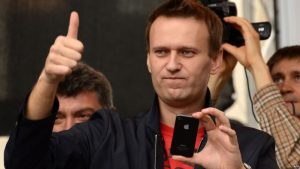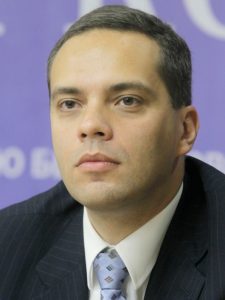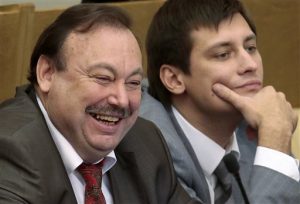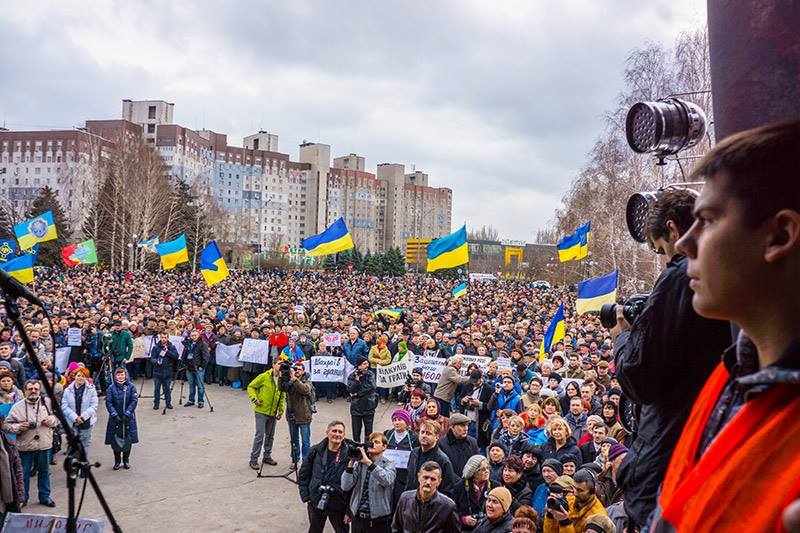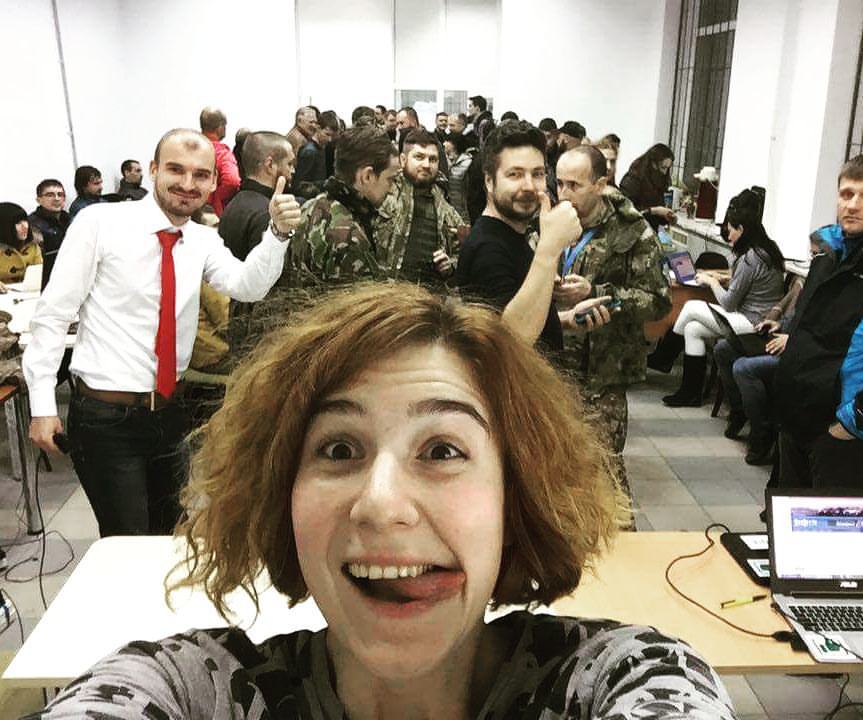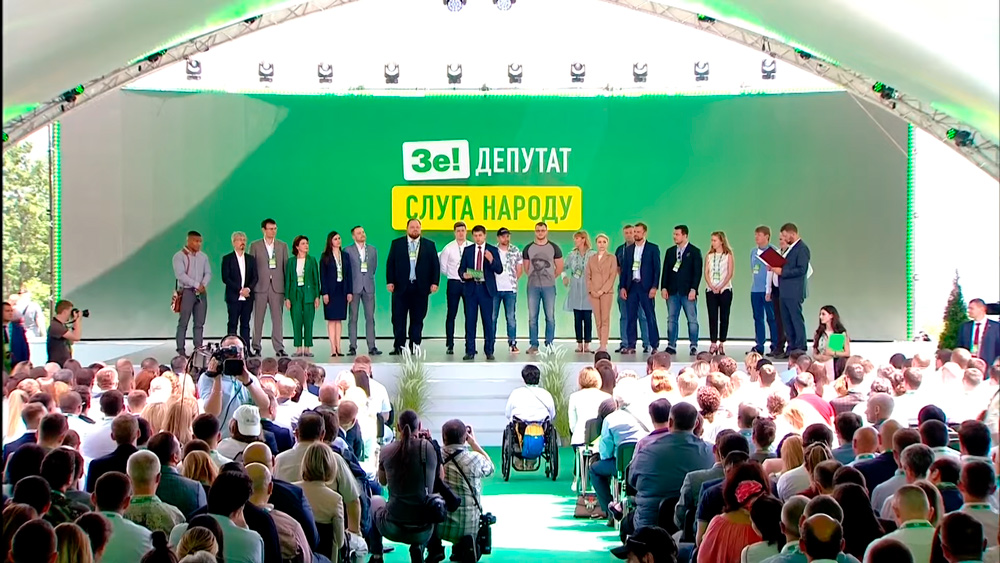Russia’s fragmented political opposition is getting back on its feet and finally uniting after the shocking murder in February of Boris Nemtsov at the foot of the Kremlin. Overwhelmed by the gravity of the assassination, the opposition has been preoccupied with mourning their friend and colleague, as well as Russia, whose political landscape seemed to change radically overnight.
Earlier in April, The Moscow Times reported that many prominent opposition politicians had agreed to unite, both to come up with a unified list of candidates for parliamentary elections and to seek justice for Nemtsov’s murder. On Friday Gazeta.ru reported that negotiations have been taking place to form a democratic coalition for the upcoming election cycle. Nezavisimaya Gazeta reported that two of the largest opposition parties, Alexei Navalny’s Progress Party and Mikhail Kasyanov’s PARNAS Party were joining forces in view of looming 2015 local and 2016 parliamentary elections. With the current parliamentary opposition kowtowing to Putin, the roughly 16% of Russians who disapprove of his policies have no representation whatsoever. The opposition vows to change that by proposing a united platform of candidates for the upcoming elections.
This is just the beginning. On April 18 major opposition leaders, civic activists and representatives from 60 regions throughout Russia attended a Conference in Moscow entitled "Opposition Agenda for 2015-2016 Elections," at the end of which we learned that several additional opposition parties, including Democratic Choice, Citizen Initiative, December 5 Party, and Libertarian Party have agreed to join the coalition. In addition, Mikhail Khodorkovsky's Open Russia organization as well as Solidarity movement expressed support for the growing opposition coalition. A video of the Conference can be seen here.
With no end in sight to Russia’s economic slump or the war in Ukraine, Putin’s support may well drop in the next few months. This means it is more important than ever to follow Russian opposition politics in the run-up to the upcoming elections. This is not an easy task, however, given the many characters and parties that comprise Russia’s opposition. That’s where Maxim Katz comes in.

Maxim Katz is a local Moscow city councilman, popular Russian activist and blogger, and community organizer extraordinaire. He headed Navalny’s dramatic Moscow mayoral campaign in 2013. More recently he’s been busy leading volunteer efforts to keep the Nemtsov Bridge memorial dignified and full of flowers at all times; no small task, given the near daily removal by authorities.
Last week Katz produced a video explainer about Russia’s opposition on his livejournal blog. It is an extraordinarily clear, hopeful yet realistic, and comprehensive review of all the players that comprise the opposition in Russia today, together with an analysis of their unique pros and cons. It is no less than a bold proposal for victory in upcoming elections by uniting in common cause to defeat Putin. It’s particularly useful to us as a compendium of who’s who in a complicated political scene. It also serves as a kind of motivational talk, encouraging the defeated and discouraged by pointing out the opposition's strengths and proposing ways to nurture and cultivate them to victory.
This comes at a critical time in Russia, when opposition voices seem more marginalized than ever under Putin, with more raids, arrests, investigations, and prosecutions on almost a daily basis. After the devastating blow of the assassination of Boris Nemtsov, the opposition’s most prominent leader, it is time to regroup, and Katz is setting the stage for coalitions with this engaging, insightful and instructional video. The video provides a barebones lesson in democratic government structures, including the rationales for a robust opposition that keeps government on track and accountable. He also argues that, contrary to the currently prevailing attitude in Russia, opposing one’s government is not an act of betrayal but in fact an act of patriotism. This is a particularly important statement to make in Russia today, where Kremlin propaganda has created a cult of patriotism and Putin that leaves no room for criticizing Russia's policies or its leadership.
Katz's video reminds me of the work of Hank and John Green, America’s famous Vlogbrothers, who produce explanatory and engaging short YouTube videos on all sorts of important and complicated topics. Katz’s video is considerably longer, but, in the great tradition of Russian masterpieces, nothing is short. One of his followers even transcribed the entire video. I took advantage of this labor of love and translated key parts of his Russian transcript into English.
[hr]
What is an opposition and why is it necessary?
Representative: A significantly large segment of Russian society today has no representation in the Russian government, not in the State Duma [the Parliament], not in regional and municipal councils, nor anywhere else. This is a big problem. When a segment of society doesn't have representation in its government, but wants to participate, this segment of society sometimes stages a revolution. Nobody really wants that.
Legitimate and proper: In general, opposition parties around the world are completely normal phenomena. People debate in parliaments, address the media, and in general do not agree with what their government is doing. And this is not considered a betrayal or some illegitimate act. In fact, it's perfectly normal and proper. Issues are debated within society and the policies that are subsequently adopted as a result of such discussions offer the best solutions for the society. For us, however, this has somehow become unacceptable of late.
Patriotic not Treasonous: In Russia if someone doesn't agree with the policies of Vladimir Putin, he is deemed a banderite, the fifth column or a national traitor, and people start saying he's being funded from abroad. Because, well, who else would speak against our wise leader? Such attitudes lead to a situation where people who have opinions and want to express them can’t get heard in mainstream society, or by decision-makers. When this happens, policy decisions taken without those participants' voices end up being not the most efficient, and sometimes even downright stupid. Decisions like starting a war with a neighboring country, a war that is utterly senseless.
Power Concentration/Separation of Powers: In general, when power is in the hands of one person, it can very easily be steered in the wrong direction. It’s no wonder that the concept of the separation of powers was invented, where the judiciary must be independent from the executive, and legislative branches of government are independent from the executive. But we are all controlled from a single room, and not even by the most intelligent people in that room.
Who comprises the opposition in Russia and what are its advantages?
True opposition opposes Putin's policies. What’s officially called the opposition in Russia is in fact not an opposition at all, because they all essentially agree with Putin’s policies. For example, representatives of all the parliamentary parties came to the recent pro-government marches. United Russia and the Communists and Just Russia and the Liberal Democratic Party. Clearly, this is not an opposition, and it’s kind of a joke. All these people who, by the way, sit with me in a nearby building [at a local council in Moscow’s Shchukino district], do not really represent the interests of any sector of society except the one that supports Putin. And indeed it’s now quite difficult to figure out who supports Putin and who does not. Zhvanetskiy put it well a long time ago: "If you have only one window in the house, what’s its point of view?" Obviously, when Putin is shown all day on TV, his ratings are going to be high.
A true opposition exists in Russia. However, an opposition does exist in Russia. ... They are the ones who oppose Putin. Those who support Putin, but do not agree with some of his smaller decisions - they are not the opposition. That’s actually an intra-party debate within the larger party of Putin, which now also includes the Communist Party, and the Liberal Democratic Party and the Fair Russia Party. A true opposition is those who oppose Putin.
Opposition is independent: Firstly, it is independent from the government. Naturally, if you do not support Putin, then you are independent from the government. You don't receive their money; you do what you believe is right. An independent center of power in these matters is very important. Because if the opposition is coordinated from the same place as the government in power, nothing good will come of it.
Opposition has unselfish interests: Second, the opposition is unselfish. Among the participants and leaders in the opposition movement there are no people who are doing it for their own benefit, because being in the opposition in the last 10 years has been very unprofitable. If you want to do something profitable, then you join the presidential administration. You ride like Vladimir Zhirinovsky [head of the Liberal Democratic party] in his Bentley or something simpler and receive your payment. In the opposition there is no money, no job, not even a warm corner. Therefore, people who are engaged in it are doing it only because they really believe it is important to do, not because they want to gain something for themselves.
Opposition is patriotic: Third, it is patriotic. And this is true patriotism, not the kind of patriotism they’re trying to convince us of. Everyone wants to be considered a “patriot." But they’re trying to convince us that being a patriot means blindly accepting whatever the authorities are doing, and never exposing them to any analysis or questioning. But our opposition analyzes and questions what the authorities are doing, and tries to work out, or at least offer to develop the best solutions to the questions of the day. It does not oppose everything, but it does not always agree with everything either. That’s what it means to be in opposition. And this should also be called patriotism. True patriotism is calling on the leadership and people of your country to think carefully before making important decisions. In my opinion, this is what patriotism is about - not being silent when you don’t like something and simply shouting "Hurray!" when Putin passes by.
Loser mentality. The first major problem - it’s a loser. Over the past many years the opposition has been beaten, its supporters are very few, at most 1-2% of population, and [people believe that] everyone supports the government and you should not rock the boat. Many good people have left the opposition because of this, and those who remain have little confidence in victory and often want to show how bad things are.
Tsarism. This brings us to the second problem of the Russian opposition - the belief in tsarism. The opposition often operates not in order to win, but to show some abstract good leader or leaders that something is wrong, and there’s disorder in the country. Instead of offering an alternative agenda and pushing it forward, the opposition points out that things just aren’t right today. But we have no one who will see these points, because nobody cares to. Therefore, this strategy does not work.
Fragmentation/Organization. And the third problem of the opposition is the lack of systematized organization. This is largely due to the fact that it is so squeezed in terms of its work and it has no funding or money, because if you finance the opposition, then you begin to be persecuted. If a business works with the opposition, it’s going to be persecuted. Therefore, the opposition has no money, so there is no machine, no people who come to work every day and set the agendas, respond to matters on the agenda. The result is that the opposition has a kind of overarching program, which is generally clear and correct, but there is no regular response to events, there aren’t all sorts of interesting actions taking place which would force people to question whether things are really going well in our country. That's a problem.
Strategy for opposition victory
Constitutional means of power transfer. Let's talk about how the opposition could take power in the country. Some say it can be done with a Maidan. I believe that they are wrong, because it's no good for us and certainly wouldn't bring the appropriate people into power. When a revolution happens, the ones who usually come to power are those with more weapons rather than those with the sharper minds. That’s why we don’t need a revolution, but we do very much need to change the regime by constitutional means. And if it’s too hard to think about impeachment right now, then participating in the elections for the State Duma, and after that in the presidential race is indeed very possible.
2016 Elections: In 2016 we’ll have elections to the State Duma. We need to have an opposition faction there, and from there, this opposition faction can nominate a candidate for the presidency. That presidential candidate will have to beat Vladimir Putin in the second round. And there, in the second round - all sorts of things can occur, really, anything can happen. And it is not a given that the way in which Vladimir Putin conducts elections (completely disregarding what's happening, refusing to participate in debates) that people will again fall for such an approach. Therefore, in my opinion, this may be our path to victory.
Who in the Russian opposition can accomplish these goals?
Major Parties and Players
(1) PARNAS Party, Mikhail Kasyanov (whose co-chair Boris Nemtsov was killed) A few days ago, on Echo of Moscow radio announced the possibility of creating a liberal opposition coalition for the elections to the State Duma. According to Kasyanov, the following players could become part of it:
PARNAS Pros: The plus of PARNAS [Parnassus, also acronym of Partiya Narodnoi Svobody, People’s Freedom Party] Party is, first of all, that a former Prime Minister and all the great statesman came from this party. Such public figures as Mikhail Kasyanov, and 9 other are left in the country, including Mikhail Gorbachev, Dmitry Medvedev, all former prime ministers. But only one of them - Mikhail Kasyanov - is active and in the opposition today. And he is in a leadership position with PARNAS. This is very important because it is difficult to speak about today’s agenda without a deep understanding of government finances and government work. Mikhail Kasyanov and his team absolutely understand this. Boris Nemtsov was also a very important asset of PARNAS, but, as you know, he was killed. He was a former governor and even more deeply aware of Russia’s management system and could speak out about the issues on the day. But unfortunately, PARNAS doesn’t have him any longer.
PARNAS cons: they don't have a systematized machine to respond or to speak to agenda issues, even though there are leaders who have important opinions and are capable of speaking to the agenda. Also, there is a problem that is inherent to many parties that have been around for a long time: they are burdened by activists who have been with them for a long time, who are always used to losing - as a result, they often have a very loser mindset. They don’t play to win, they just play to participate. It's not as bad as the next bunch which will be discussed, but they do have this attitude. Despite the fact that last time they did win an election, Boris Nemtsov won a city council seat in Yaroslavl, they still have this problem.
(2) Yabloko [Apple] Party. This is Russia's oldest democratic party. On the plus side, you can say is its integrity and respect for its constituents. It has long been on the political scene. It never supported Vladimir Putin. This party is known as the principled player who perhaps doesn't often win, but still deserves respect. Another plus is that it receives state funding because it won 3% of the seats in State Duma elections the last time around. And that government funding does not depend on any political decisions. They receive this money each year no matter what, as the law provides.
The biggest disadvantage of the Yabloko Party is that they are part of the establishment; they’re used to sitting in their glorious mansion on Pyatnitskaya Street, they walk to work every day and feel like they’re the democratic opposition, while not wanting to change anything too radically or have a serious argument with anyone. It has to be said that they do often go against the government. They didn't support the annexation of Crimea. But they rarely go out on a limb and often negotiate with the government, because they are much more comfortable in their mansion, rather than aiming to be the governing body. This problem is reflected in the fact that they often target their own [for criticism].
Everyone remembers the 2003 elections, when Yabloko’s main agenda was to prevent the CPC [Solidarity Party] from getting into the State Duma, and, as a result neither one made it. There are many such examples and there are continually more. For example, when I ran for Moscow City Duma, Yabloko ruined my chances by putting up a candidate who couldn't win, but managed to pick up the democratic vote. As a result, we had enough votes to win together, but neither of us had enough to win alone. Yabloko sometimes call this their integrity, but this is really their biggest problem. Because of this, they don't have a presence anywhere - neither in the Moscow City Duma, nor in the State Duma. There are very few of them. There are some in the St. Petersburg parliament and in Pskov and in one other area. But compared to their potential as the main democratic opposition party, their representation is very small. If they don’t learn to work the machine to win, they won't achieve anything.
(3) Alexei Navalny's Progress Party. He has a lot of definite pluses. He is very competent on the Internet, works very well with an online audience and is able to fundraise, both large and small. He has experience running an electoral campaign in the mayoral race in Moscow, which was by far the most successful election for the opposition of all time in modern Russia. Also to be noted is his courage and steadfastness. He also pushes forward. And so he attracts large audiences that support him, which is wonderful.
Among Navalny's disadvantages are issues of leadership, both his and his supporters; he doesn't attract professional organizational and expert resources. There are quite a lot of people who could very well help in organizing his party, forming an agenda, and responding to the issues on the agenda. Instead, he prefers to gather around him, so to speak, weak people who have just graduated from university, it is their first job and they just carry out his instructions, they do what they’re told. But they don’t bring their own ideas or any serious independent projects. Of course, they have a great project, the Anti-Corruption Foundation, but they do not rise to the level of a federal political party, in my opinion, because they have not attracted the available organizational and professional resources.
(4) Mikhail Khodorkovsky and Open Russia Project, which is not a party, but, I hope, will one day become one. On the plus side - he commands great authority among a significant segment of the population. This man showed his unbreakable spirit. He was imprisoned, he didn’t betray his people, he didn’t break. After his release from prison, he formulated an excellent Russian opposition agenda. He speaks well and has experience in managing large organizations, the only opposition member who has done this apart from Mikhail Kasyanov. He knows how to negotiate, and has a good organization.
Among the disadvantages of Mikhail Khodorkovsky is his absence from Russia. It is quite difficult to do such work from abroad. And his staff has quite a lot of the old opposition activists who are not accustomed to winning, not used to doing system projects with financing, resources, etc.
Other Important Figures
(5) Andrei Nechayev and his Civic Initiative Party. He is Russia’s first Minister of Economy, who is now quite active. He speaks frequently in the media and on television, including on state channels. He always puts forth an opposition agenda and he can be a significant asset in an opposition coalition.
(6) Democratic Choice and its charismatic leader Vladimir Milov, who is well-spoken on gas and energy issues, which would be very helpful in this coalition. They also have some regional structures and supporters.
(7) Civic Platform Party: There are the splintered-off groups of the Civic Platform Party, whose main faction supports Putin and who helped form Antimaidan. But there remains another segment, led by Irina Prokhorova, who makes substantive appearances, is often in the media and puts forth a good opposition agenda in terms of the economy, though she's not a radical. Many find her very appealing, and she might be a great asset for an opposition coalition. In addition, among the fragments of Civic Platform there are many important influential people, media figures, such as Andrei Makarevich and Mikhail Barshchevski that could occasionally join the opposition coalition and add a lot to it.
(8) Dmitry and Gennady Gudkov. Dmitry Gudkov is an active deputy of the State Duma. Gennady Gudkov - a man who was unfairly expelled from the Duma. They also have experience in government (and, in fact, one is an active deputy of the State Duma) and they have experience in participating in elections. These people would be also very useful for an opposition coalition.
Others from media world:
(9) Ksenia Sobchak: An opposition coalition has even more potential allies who don’t look like opposition figures at first glance but who can support it. For example, we all saw them on the Coordinating Council [a governing body for the Russian opposition elected online in 2012 which ultimately failed in its task to provide a regime change agenda]. They are willing to engage in politics, but currently they are not engaged. I’m thinking primarily of Ksenia Sobchak [ex-reality TV host/socialite currently working as a journalist for the independent TVRain channel], who has access to a very large audience (she has a million subscribers on her Instagram and Twitter accounts, as far as I know) to which none of the above persons has access. That is, nobody else knows how to reach this audience, they do not follow anyone else, they basically do not care about politics. But Ksenia Sobchak could interest them in politics. Therefore, she is very important. If we manage to attract her, it would be a huge asset.
(10) Sergei Parkhomenko: In addition, there is a group of former members of the Coordinating Council who are media figures. There is Sergei Parkhomenko, who has experience in creating the civic projects the Last Address [setting up memorial plaques for political prisoners] and Dissernet [exposing plagiarism in Russian officials’ scientific papers]. These projects are financed through fundraising, and they are doing interesting things. Then there are also Michael Schatz and Tatyana Lazareva [popular TV comedians], as well as many media personalities that could potentially support an opposition coalition, if they can be talked to appropriately, and if they can see this perspective.
(11) Mikhail Gelfand [prominent scientist and professor], who was also involved in the Coordinating Council and could give access to some academic audiences and greatly assist with preparing responses to agenda issues.

(12) Pussy Riot's Nadezhda Tolokonnikova and Maria Alekhina. They have great prestige abroad. They recently participated in an event with Bill Clinton and basically go abroad regularly. Not that it really helped us here in our elections, but they also have a specific audience here. And they have experience in creating their own media, which is currently aimed at publicizing the problems of prisoners and prison issues. They could formulate a position for our agenda on this important issue, which oddly enough no one else is particularly engaged in.
(13) Civic Projects, Maxim Katz: Then there’s me and our Civic Projects [urban improvement project NGO]. It may sound a bit presumptuous, but I believe we have the most powerful organizational resources, and we are good organizers. We’ve proved this several times, including collecting signatures for the Moscow City Duma elections. A significant part of our team staff remains from 2013, when we helped organize Navalny’s bid for mayor. We are able to work well on the Internet, and we are able to fundraise. In other words, we can also be useful in an opposition coalition.
Some important thoughts to keep in mind:
Victory is possible. First, this thing [the opposition] could easily win. Saying the opposition is just some very minor thing, that it only has the support of 1% of the population is absolutely ridiculous. And we have seen this story play out with attacks on the Coordinating Council and Navalny’s mayoral campaign; both times, the opposition turned out to be very strong. The [released] figures now shows the Coordinating Council had 24% popular support; that's 24% of people who said they were interested. During the election for the mayor of Moscow, Alexei Navalny received more than 27% of the vote, and was very close to forcing Sobyanin into a second round. In general, this thing is very strong and it can win.
Uniting can bring victory. Second, this is something that can win when we’re all together, combining all the important pieces. Because every single character has some strong element to offer, but may lack the other pieces. Someone may work well on the Internet, but has no professional skills. Someone else may have skills, but not on the Internet. Someone has a mansion and regional structures, but there is no work on the Internet, or professional skills. Someone has an audience, but has no political content. Someone has organizational resources, but has neither content nor skills. In general, things work very well together, but bad separately.
Beware Sabotage: You also have to understand that most likely it [an opposition coalition] will be sabotaged, and it is very likely that it will be sabotaged by using Yabloko, as awful as that is to acknowledge. It is very likely that what happened in 2003 will happen again, that Yabloko will get some vague promise that they can make it. They will start attacks [on us], there will be so much pressure. But we must not be afraid of this.
In other words, they can’t let our opposition narrative fully develop, because if it does, it will break the regime apart. But even if it does not happen in full, and we must understand that the regime will sabotage it, it could still win. It is still important to understand that this is what is possible and nothing else is possible.
It is important to understand - perhaps just that. You don't have to believe in miracles. There are no magical regional activists or some people we don't know yet who will come and fix everything.
It is clear that there are some significantly influential groups, such as entrepreneurs, for example, which we don’t know of now and who don’t think they oppose the regime. But they too are an opposition force. They can join the opposition coalition, and can add to it greatly. But don’t expect it all to work in a completely new way. That is, there is no magician who can somehow gather some regional activists and win elections over the party in power.
We must work with what we have. You may not like Kasyanov, maybe you have some preconceptions about him. Maybe you've heard some silly stories about him. But he is a former prime minister. We don’t have a large selection of former prime ministers and former government officials. We used to have a choice of two, and now there’s only one left. Therefore, we cannot say to him: "Go away, we’ll give it a go without you." We cannot say "go away" to Mikhail Khodorkovsky. We cannot say that to Alexei Navalny. We cannot say it even to the Yabloko party. We can’t say it to anyone. We all have to do this together, we cannot ask anyone to leave, we cannot drop anyone. We cannot say garbage like “ten years ago he called for this or that, so we won’t work with him on principle.” We can’t afford to leave anyone behind; we should not send anyone into retirement.
We all have to try to unite and try to insist that all together, we can share victory. And there is much to share. In the event that we put together a party list of candidates, then there is a chance to claim 30-70 seats [in the national parliament]. That is, seats can be divided among the list of people from various parties and run for State Duma elections and win them. And then they can put forward a presidential candidate, and then force Putin into a second round of elections. And we win there. Such a plan, I think, can work for the opposition.
I’ve sketched out what the Russian opposition looks like now. It is absolutely not weak, as the state tries to say. And it can win. And I hope it will happen and that we will take part in this together.
![]()



